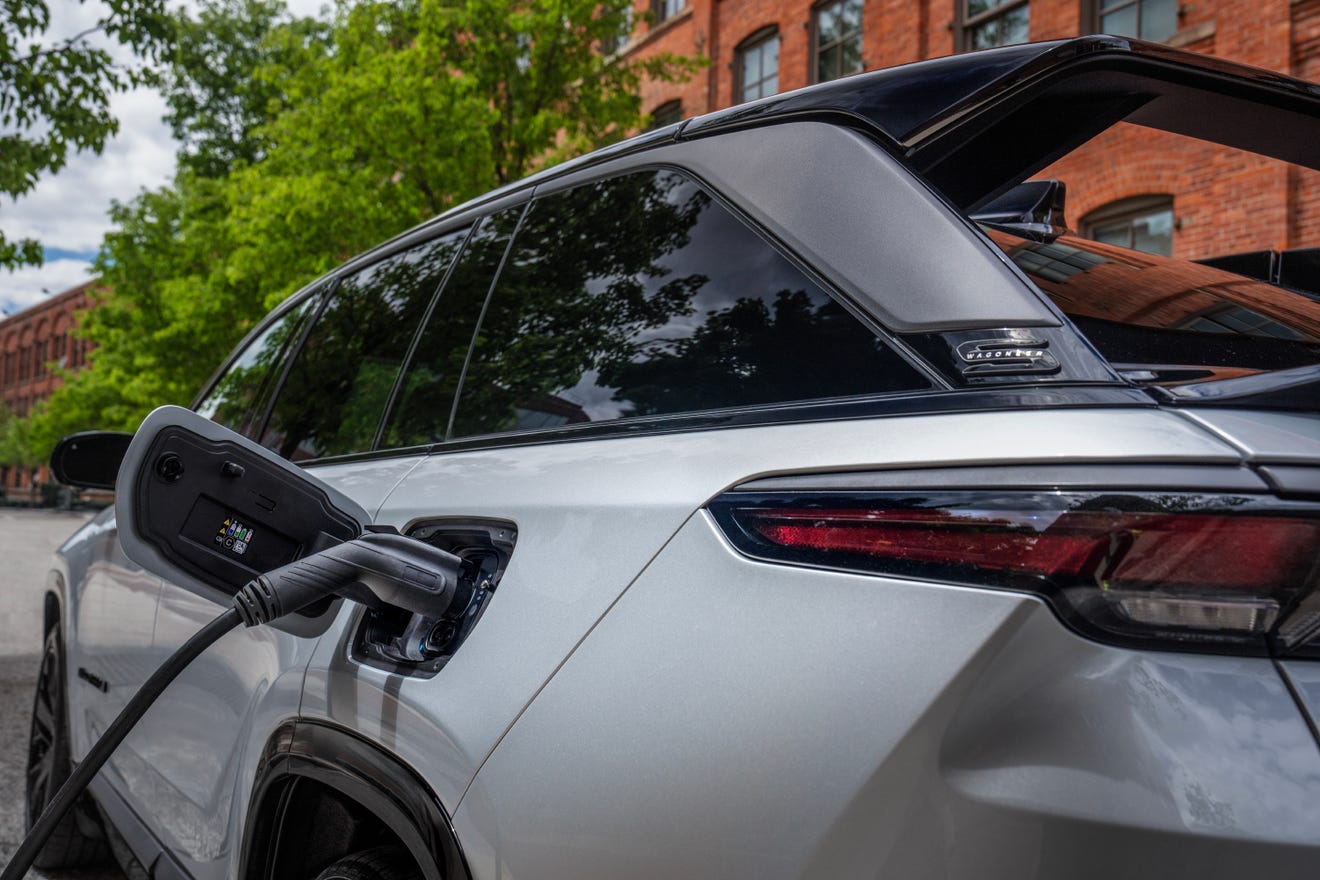Electric Vehicle Mandate Faces Renewed Opposition From Car Dealers

Table of Contents
Financial Concerns and Infrastructure Gaps
The transition to an EV-centric market presents significant financial hurdles for car dealerships, particularly smaller ones. Dealers argue that the current electric vehicle mandate doesn't adequately account for the substantial investment required to adapt their businesses.
High Initial Investment Costs for Dealerships
Adapting to the EV market demands considerable upfront investment. Dealerships face a range of expenses including:
- Specialized EV charging infrastructure: Installing high-powered charging stations requires significant capital outlay and may necessitate upgrades to existing electrical systems.
- Employee training on EV technology: Mechanics and sales staff need specialized training to diagnose, repair, and sell electric vehicles effectively. This training is costly and time-consuming.
- Inventory management changes: Managing EV inventory differs significantly from gasoline-powered vehicles. Dealerships need to account for varying battery types, charging needs, and potentially lower turnover rates.
- Reduced profit margins: Profit margins on EVs are currently lower than on traditional vehicles in many markets. This is further compounded by the higher cost of EV servicing.
These substantial investments create significant financial risk, particularly for smaller dealerships that may lack the resources to absorb such costs. The higher cost of EV servicing compared to internal combustion engine (ICE) vehicles further exacerbates this problem.
Lack of Supporting Infrastructure
The success of an electric vehicle mandate hinges on robust supporting infrastructure. Dealerships correctly point out critical gaps in the current infrastructure, including:
- Insufficient public charging stations: The current network of public charging stations is inadequate to support a mass adoption of electric vehicles. Range anxiety remains a major barrier for consumers.
- Range anxiety: Consumers are understandably concerned about the limited range of many EVs and the availability of charging infrastructure during long journeys.
- Inconsistent government incentives: Government incentives for EV adoption vary widely across regions, creating confusion and inconsistency in the market.
- Renewable energy supply: The increased demand for electricity from EVs necessitates a reliable and sustainable energy supply. Investing in renewable energy sources to power the increased EV usage is critical.
These infrastructure deficits hinder widespread EV adoption and create additional uncertainty for dealerships already burdened by the financial costs of adapting to the new market.
Consumer Demand and Market Readiness
While the environmental benefits of electric vehicles are undeniable, dealers argue that the current market isn't ready for the aggressive sales targets set by the electric vehicle mandate.
Limited Consumer Awareness and Acceptance
Several factors limit consumer acceptance of EVs:
- Concerns about battery life, charging times, and overall cost of ownership: Many consumers remain uncertain about the long-term reliability of EV batteries, charging times, and the overall cost compared to gasoline-powered vehicles.
- Lack of understanding of available incentives and government support programs: Consumers often lack awareness of available government incentives and financial assistance programs to offset the higher initial purchase price of EVs.
- Perceptions of limited driving range and model selection: Concerns about limited driving range and a smaller selection of EV models compared to gasoline-powered vehicles remain a significant barrier to adoption.
Addressing these misconceptions and increasing consumer awareness are crucial for stimulating demand and making the electric vehicle mandate more effective.
Inventory and Supply Chain Issues
The transition to EVs also presents significant challenges related to inventory and supply chain issues:
- Challenges in securing sufficient EV inventory: Dealers struggle to obtain enough EVs to meet current demand, let alone the aggressive targets set by the mandate.
- Delays and shortages in EV components and batteries: The global supply chain for EV components and batteries is still developing, resulting in delays and shortages that further complicate inventory management.
- Inconsistent supply chain: The inconsistent nature of the supply chain leads to unpredictable delivery times, making it difficult for dealerships to accurately forecast inventory needs and meet sales targets.
These supply chain disruptions contribute to the overall market uncertainty and create further obstacles for dealerships trying to adapt to the requirements of the electric vehicle mandate.
Training and Skill Gaps within the Dealership Workforce
The shift to electric vehicles also demands a significant upskilling of the dealership workforce.
Need for Specialized EV Technicians
Servicing EVs requires specialized skills and knowledge:
- Specialized training and certifications: Technicians need specialized training and certifications to work on high-voltage systems and the unique components of electric vehicles.
- Lack of qualified professionals: There is currently a shortage of qualified EV technicians, creating a bottleneck in servicing the growing number of EVs on the road.
- Costs associated with training and upskilling existing staff: Training existing staff to work on EVs requires a significant financial investment for dealerships.
Addressing this skills gap through targeted training programs and government support is crucial for ensuring the long-term success of the electric vehicle mandate.
Conclusion
The renewed opposition to the electric vehicle mandate from car dealers highlights several crucial challenges in the transition to widespread EV adoption. Addressing concerns regarding financial burdens, infrastructure gaps, consumer demand, and workforce training is paramount for the successful implementation of any EV mandate. Ignoring these realities risks undermining the entire process and hindering the growth of the electric vehicle market. To ensure a smooth and successful transition, collaborative efforts between governments, manufacturers, and dealerships are necessary to overcome these obstacles and foster a sustainable and successful future for electric vehicles. A balanced approach, considering the practical challenges alongside the environmental benefits, is key to achieving a truly effective electric vehicle mandate. A realistic and phased approach to the electric vehicle mandate, taking into account dealer concerns, is essential for the long-term success of the EV transition.

Featured Posts
-
 Ufc 314 Ppv Card Changes Prates Vs Neal Fight Cancelled
May 05, 2025
Ufc 314 Ppv Card Changes Prates Vs Neal Fight Cancelled
May 05, 2025 -
 Bianca Censoris Racy Roller Skating Outfit Bra And Thong
May 05, 2025
Bianca Censoris Racy Roller Skating Outfit Bra And Thong
May 05, 2025 -
 Russell Westbrook Makes Nba History In Jazz Nuggets Game
May 05, 2025
Russell Westbrook Makes Nba History In Jazz Nuggets Game
May 05, 2025 -
 Dope Girls Review A Fresh Take On Wwi
May 05, 2025
Dope Girls Review A Fresh Take On Wwi
May 05, 2025 -
 May 2025 Ufc Schedule Full Fight Card Details Including Ufc 315
May 05, 2025
May 2025 Ufc Schedule Full Fight Card Details Including Ufc 315
May 05, 2025
Latest Posts
-
 Book Now 30 Off Lavish Spring Hotel Accommodation
May 31, 2025
Book Now 30 Off Lavish Spring Hotel Accommodation
May 31, 2025 -
 Limited Time Offer 30 Off Lavish Spring Hotel Stays
May 31, 2025
Limited Time Offer 30 Off Lavish Spring Hotel Stays
May 31, 2025 -
 The Reality Of Ai Why It Doesnt Learn And What That Means For Users
May 31, 2025
The Reality Of Ai Why It Doesnt Learn And What That Means For Users
May 31, 2025 -
 Responsible Ai Addressing The Limitations Of Current Ai Learning
May 31, 2025
Responsible Ai Addressing The Limitations Of Current Ai Learning
May 31, 2025 -
 Up To 30 Off Book Your Lavish Spring Hotel Stay Today
May 31, 2025
Up To 30 Off Book Your Lavish Spring Hotel Stay Today
May 31, 2025
